It is more than fifty kilometers from Ivano-Frankivsk to the frontline. But it is here, in the Precarpathian city and, in particular, in the JSC, that initiatives are being implemented, thanks to which newspapers are published in frontline regions, local media are being rebuilt, and displaced journalists are strengthening their security and resilience.
Three shelling attacks have destroyed the newsroom, necessitating two relocations and a temporary transition to a digital format. Yet, the resumption of publication remains a testament to the difficult path of the only newspaper published in the Donetsk Region today, Technopolis. The once-powerful publication, which was first published in May 1992 in Kramatorsk and reached a circulation of 20,000, felt the war’s impact back in 2014 during the Russian occupation of the Donetsk Region. And then there were devastating attacks on the newsroom during the full-scale invasion of the russian federation into Ukraine. So, in March 2022, the newsroom was evacuated to the Ivano-Frankivsk Region. And it was here that Donetsk journalists felt real guild help.
“With the support of the JSC created by the National Union of Journalists of Ukraine (NUJU), international donors, and the NUJU in general, we managed to resume printing the newspaper,” says Vira Iliyina, a resettled journalist, deputy editor of the newspaper Technopolis. “And so far, we continue to remain the only newspaper published in the Donetsk Region today. Without the help of our colleagues, we would not have succeeded.”
The JSC – a Journalistic Hub in Wartime
The JSC extended a hand of support not only to journalists from Technopolis, but also to colleagues from many other publications from the frontline and temporarily occupied territories of Ukraine who were forced to seek refuge in the Prykarpattia region. The Prykarpattia region is considered a relatively safe region of Ukraine in wartime. Therefore, it was here that the JSC was created as a hub to help internally displaced media workers. Journalists from the Luhansk, Donetsk, and Kherson Regions, as well as other regions affected by fighting and occupation, found shelter here from the first days of the war. The JSC also takes care of media workers from four other regions of Ukraine in whose territories there are no such JSCs: the frontline Chernihiv and Kherson Regions, and the border regions – Volyn and Rivne. It also provides every possible assistance to foreign colleagues who cover the events in Ukraine.
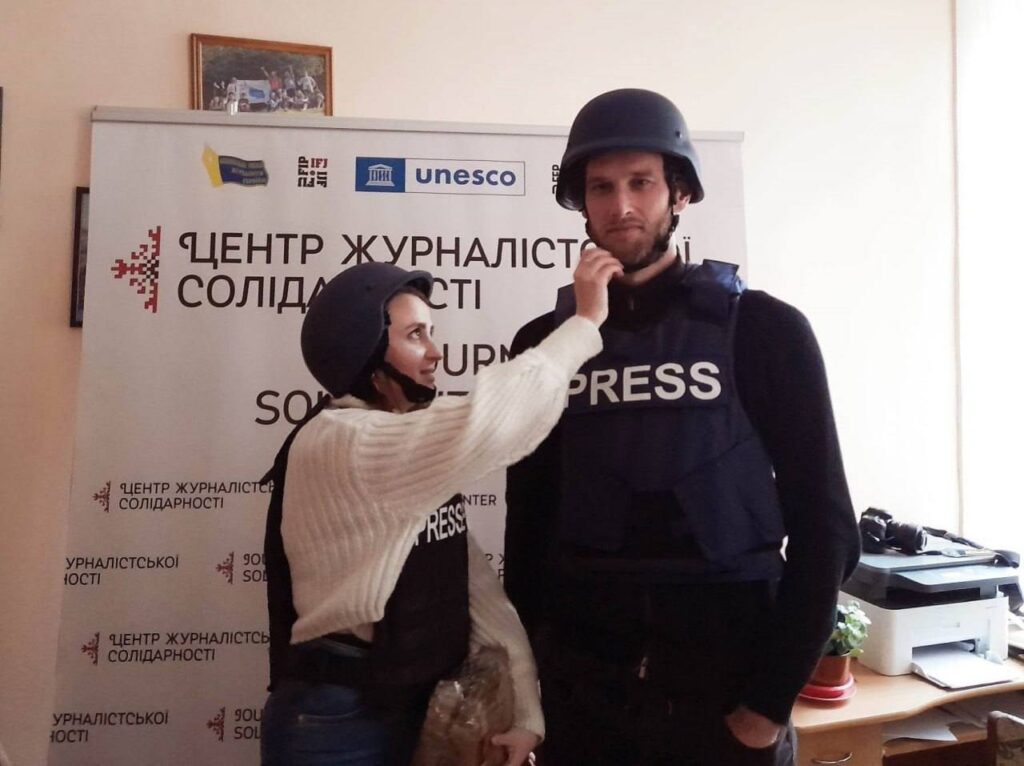
It is difficult to predict why journalists will turn to the JSC – someone needs equipment or protective gear for a trip to the front line, someone needs legal support, or someone needs help with a mundane everyday problem. Therefore, the JSC is ready to find a solution to any topic. With the support of UNESCO, free legal assistance is available to media workers. Here you can get a bulletproof vest, a helmet, or a complete first aid kit. During a blackout, run to the JSC to work in a co-working space. At a training with an experienced expert, “pump up” your digital or other skills, and get psychological help when it is difficult to “pull yourself together.”
Each of the journalists has their own story of how the JSC’s assistance worked during a difficult or critical period of its activities, or simply at a specific moment in time when such help was needed.
Channel 5 journalist Valentyna Pestushko, along with her cameraman husband, Vladyslav Radkovskyi, risked their lives while working in occupied Kherson. They decided to leave in October 2022: it was extremely dangerous to stay in the city any longer. That’s when they found temporary shelter in Ivano-Frankivsk and established contacts with the JSC. Immediately upon arrival, they started working on the 402 TV channel.
“I really dreamed of filming a report on how our military entered Kherson. And a week after we arrived in Ivano-Frankivsk, Kherson was liberated!” says Valentyna. “We immediately applied for accreditation with the Armed Forces of Ukraine. Having received it, we returned to Kherson. The JSC equipped us with bulletproof vests, helmets, and provided a tactical first-aid kit.”
Later, the journalist also tried her hand as a radio operator, as in Kherson, on the anniversary of the city’s liberation from the invaders, the X-ON radio was launched.
“I know that now my place is in my hometown, and not elsewhere,” explains Valentyna her decision. “We prepared for work in the de-occupied Kherson not only by receiving protective equipment. We also attended training in pre-medical training at the JSC, and improved our knowledge at the workshop called School of Military Storytelling from the Suspilnist Foundation. I even tested myself by conducting a fact-checking training for students, future journalists at the JSC.
Valentyna Pestushko still maintains contact with the JSC, willingly shares information with colleagues from Kherson.
“Three years ago, I moved from my native Izium, Kharkiv Region, to Ivano-Frankivsk. Then, at the beginning of the full-scale war, Izium was under occupation, and I had to leave my home. I didn’t know anyone in Ivano-Frankivsk, but at the JSC, I immediately felt a friendly atmosphere; my soul became warmer, and I started to meet people, attend training sessions, and work. And every time I come to our JSC, it seems to me that I have already been here for half of my life. We are all here as one family,” shares Maryna Trubnikova, a displaced journalist from the city of Izium, Kharkiv Region.
“At one time, I repeatedly turned to the JSC in Lviv for help, and now my colleagues in Ivano-Frankivsk help me. This help is very important, timely, and necessary. When there is a power outage, you can work in the JSC’s co-working space. Additionally, you can obtain a bulletproof vest and a first-aid kit for a trip to the frontline areas, among other benefits. It is very important to have such help and support,” said Oleh Baturin, a well-known Ukrainian investigative journalist, media worker-immigrant from Kakhovka, Kherson Region, a prisoner of russian captivity, while working in the JSC’s co-working space.
“You feel at home in the JSC: you are welcomed, they will always say a kind word, offer help, and just chat over coffee or tea. It may seem like a small thing, but for us, those who have temporarily left our homes, such support and a friendly atmosphere are very important,” adds Vira Iliyina.
“Journalistic solidarity helps me throughout my professional career. And today, when we have been living in war conditions for the third year in a row, it is very good for us, media workers, that there are JSCs in different cities of the country, where we can turn to if necessary. Moreover, it is convenient that journalists have the opportunity to contact us both online and in person for any questions,” said media worker Nataliya Kalinichenko from the frontline Sumy Region during her business trip to Ivano-Frankivsk.
“I arrived in Ivano-Frankivsk in 2023. My colleague, Roman Kryvko, who has been working with the JSC from its inception in the co-working space, prepared materials and appeared online on the air of Ukrainian Radio.Kharkiv, told me a lot about the JSC. And after I came here, it became like a family for me,” admits Tetyana Kryvonis, journalist, senior editor of Ukrainian Radio.Kharkiv.
“Training sessions, webinars, and consultations organized by the JSC are necessary and useful in professional activities; without them, we would be professionally much weaker,” noted Olha Cherniakova, executive secretary of the Chernihiv regional organization of the NUJU.
The training sessions themselves are worth mentioning separately; the JSC works hard to ensure that they are meaningful and helpful for journalists. To achieve this, foreign colleagues are involved in cooperation.
Be the first to go on air – experience shared by foreign colleagues.
For example, during a workshop at the JSC in November 2022, professional journalists and novice media workers learned from foreign colleagues Ivo Burum from Australia and Geir Terje Ruud from Norway how, using only one application on a mobile phone, you can create high-quality content and be the first to go live from the scene of an event. During the eight-hour training, media workers developed, filmed, edited, and published video stories using only a smartphone. Each workshop participant received a certificate and a manual on mobile journalism. The two best video stories created and edited during the event were determined, and the trainers presented the winners with professional microphones.
“I am used to working on camera, on video, and not with video. The ability to work with a mobile phone as a tool of journalistic work is something that Ukrainian journalists really need now. Especially those who work on the front line,” says Maksym Khodushko, a migrant journalist from Kramatorsk.
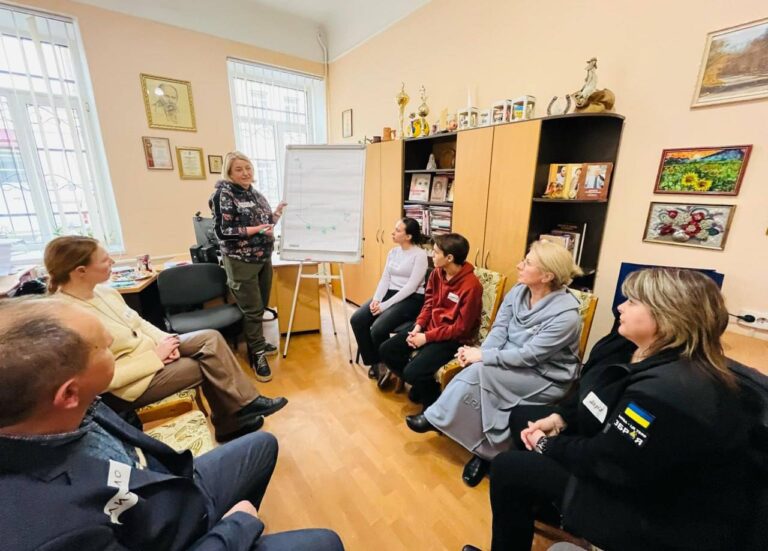
No less important area of work of the JSC was supporting the mental health of media workers. First of all, we are referring to colleagues among internally displaced persons. They, like no one else, often face stressful situations and psychologically difficult topics.
Mental health: training sessions, excursions, trips, as well as family support
The JSC regularly holds training sessions on psychological support, both offline and online. This provides colleagues from the regions sponsored by the JSC with an opportunity to participate. The classes are conducted by certified psychologists, specifically employees of the Department of Social Psychology at the Faculty of Psychology of Precarpathian National University named after V. Stefanyk.
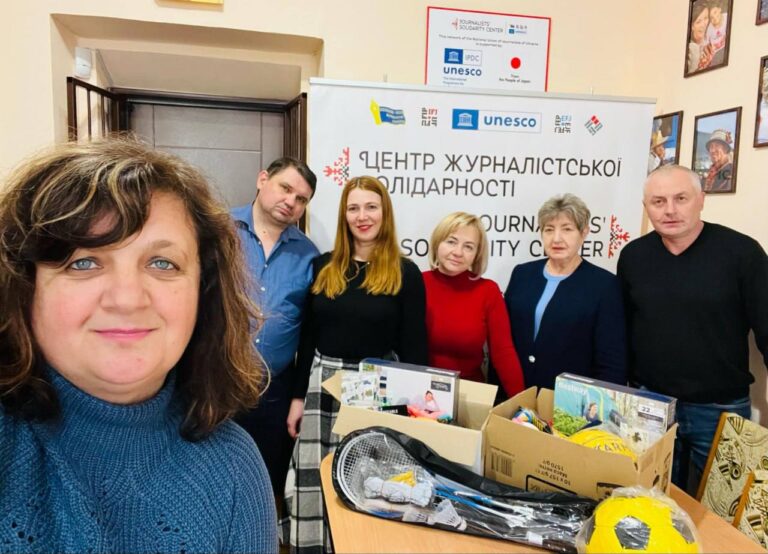
And the JSC’s employees organize excursions to the sights of the Carpathian region and trips to the mountains for their colleagues. This is what journalists admit helps to relieve stress, switch from intensive work, and get new impressions. Such a change of scenery, in itself, contributes to an emotional reset, inspiration, and restoration of internal balance. Needless to say, this is particularly important during the war.
The JSC’s employees and the families of media workers are not left out of the spotlight.
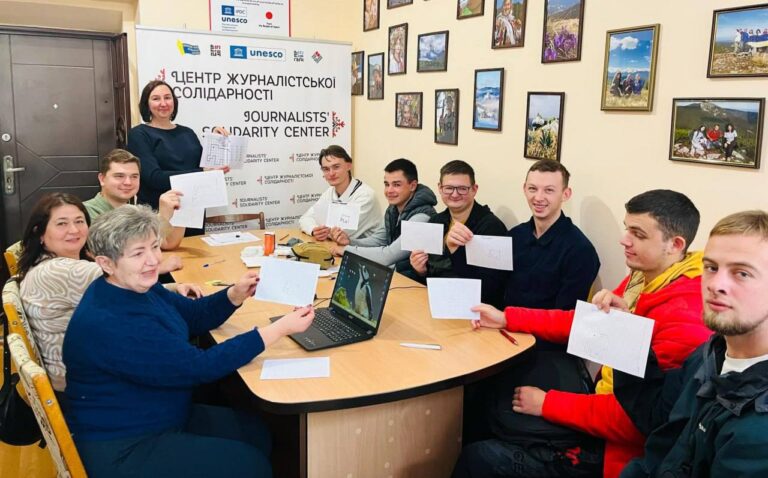
For example, children of media workers from frontline areas receive gifts that are very important in this difficult time. The JSC handed over fifteen bicycles to the children of media workers living in frontline areas. Bicycles were sent to Chernihiv, Dnipro, Zaporizhzhia, Kharkiv, Sumy, and Kherson through the Humanitarian Nova Poshta. Two more were handed over to the children of displaced journalists who live in the Ivano-Frankivsk Region today.
Thanks to the Partnership for Victory project, the JSC also contributes to the treatment of seriously ill children. In particular, it was possible to send eight seriously ill Ukrainian children for free treatment to Italian children’s clinics in the cities of Ancona and Turin.
How and thanks to what does the JSC manage to implement all its initiatives? First of all, the JSC is a link in a single network of JSCs of journalistic solidarity created by the NUJU. Therefore, partnership programs are operating, initiated, and debugged by the NUJU. And, of course, the work of the JSC energetic team, led by its coordinator Viktoriya Plakhta, plays a significant role. Ivano-Frankivsk residents have managed to find strong and reliable partners, establishing collaboration with many caring individuals.
Luciano Cartolano and others: about partners and associates
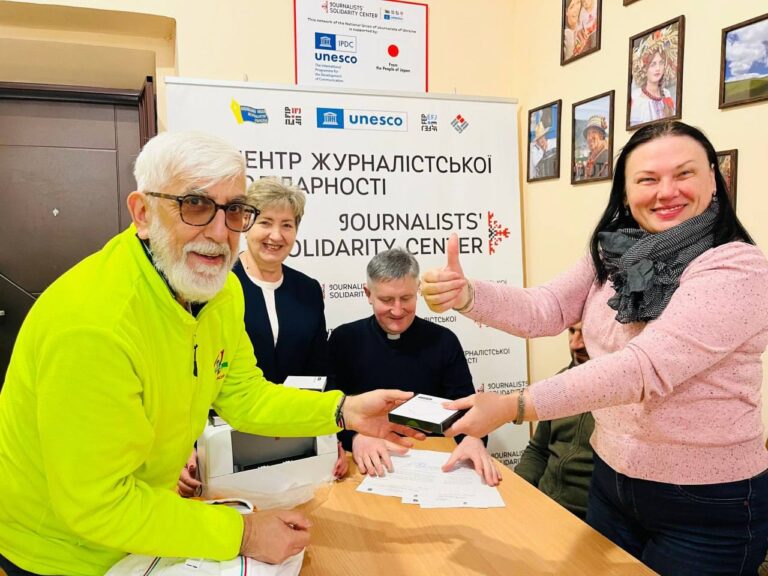
During its activities, the JSC has established cooperation with numerous regional volunteer, public, and charitable organizations, for example, such as the Charitable Foundation “Clean Heart,” public association “Community of Saint Egidio,” charitable organization “Charity Foundation “Misericordia,” international volunteer association Anteas Alessandria (Alessandria, Italy).
Here is just one example of how it works with the Italian association.
Together with Anteas Alessandria, as well as the Ivano-Frankivsk Regional Children’s Clinical Hospital and the Ivano-Frankivsk Archdiocese, the Partnership for Victory project has been implemented for the second year. Within the framework of this project, approximately three dozen Ukrainian journalists, among the displaced persons temporarily residing in the Ivano-Frankivsk Region and the sponsored Central regions, received targeted assistance in the form of power banks.
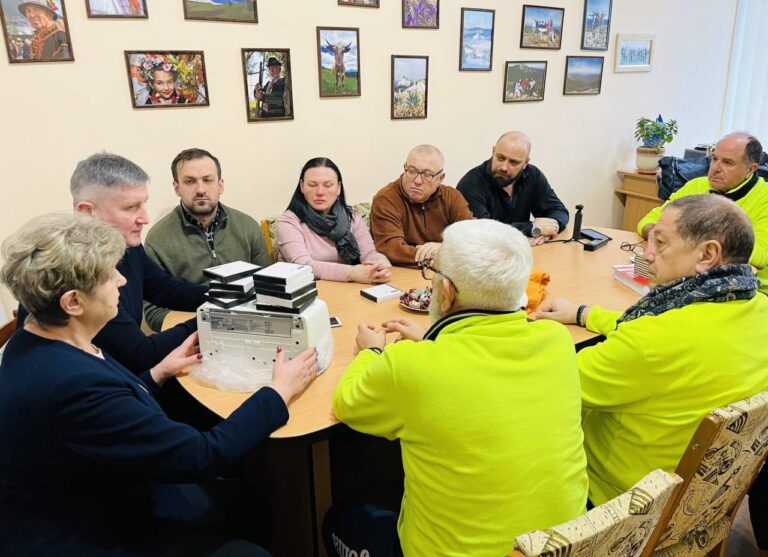
“We have good and systematic cooperation with journalists of Ukraine. We often communicate with the President of the NUJU, Sergiy Tomilenko, and we are aware of your problems. Our support for Ukrainian journalists will continue in the future. And I also dream that the time will come when I will come to Ukraine as a tourist,” said President of Anteas Alessandria Luciano Cartolano.
We want to note that at the request of the Ivano-Frankivsk JSC, Luciano received a well-deserved award – the Cross of Civil Merit “To Heroes Without Weapons.
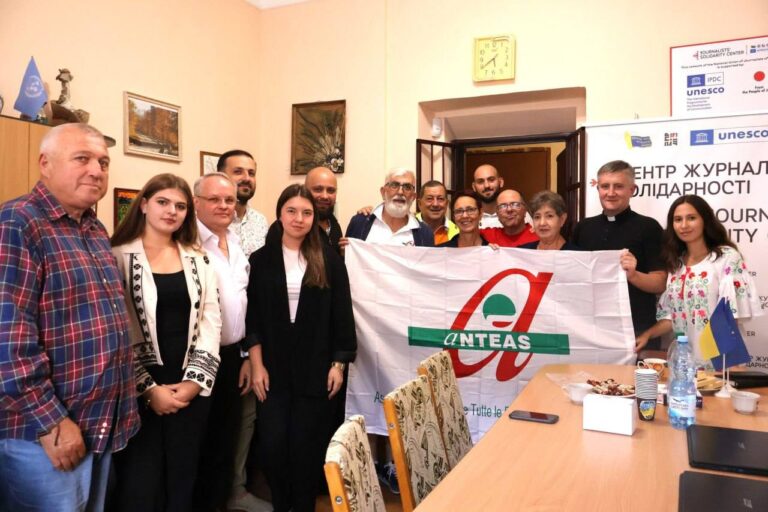
Computer equipment and power banks were also transferred to meet the needs of the local media’s editorial teams. For example, the newsroom of the Verkhovynski Visti newspaper, which operates in the most remote mountainous district of the Ivano-Frankivsk Region, received a printer. Journalists from the Siverskyi Krai newspaper and the Siverskyi correspondent of Suspilne Chernihiv, who work in frontline areas, displaced students of specialized departments at universities in Ivano-Frankivsk, as well as journalists whose relatives are fighting at the front, received power banks. Journalist from the Volyn Region, Liudmyla Pryimachuk, received a new smartphone, which has become a valuable assistant in preparing materials in the frontline zone.
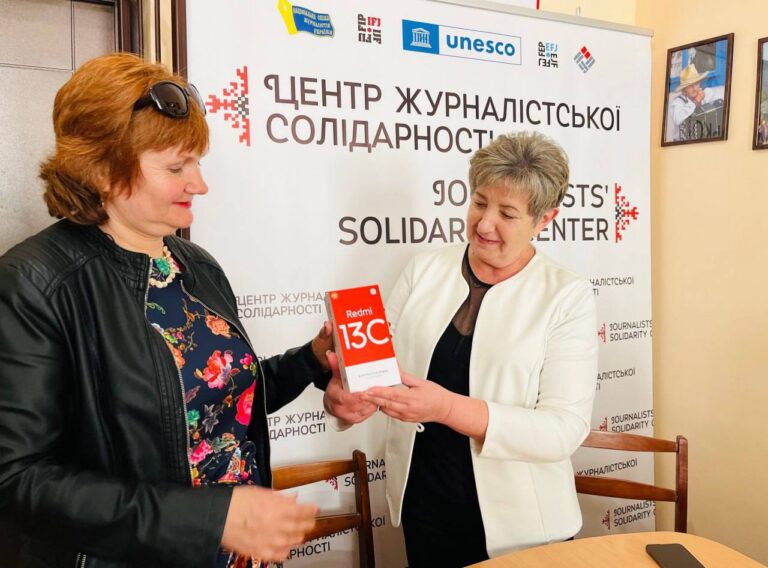
The program to help children was launched within the same Partnership for Victory project with the support of the NUJU, thanks to the help of the “Misericordia” Charitable Foundation of the Ukrainian Greek Catholic Church and its cooperation with Italian-Ukrainian organizations – the Ukrainian Community in Venice, the “Maniverso ODV” NGO, and the “Ucraini Irpini A.P.S.” NGO.
“Together we are always the strongest!” says Viktoriya Plakhta. “The Partnership for Victory project became possible thanks to our active community member, volunteer, and editor-in-chief of the PRAVDA.IF internet resource. Mykhailo Savliuk, director of the Andrii Holynskyi Charitable Foundation, Andrii Holynskyi. Special thanks to the Humanitarian Nova Poshta. May all our gifts always reach their intended recipients!”
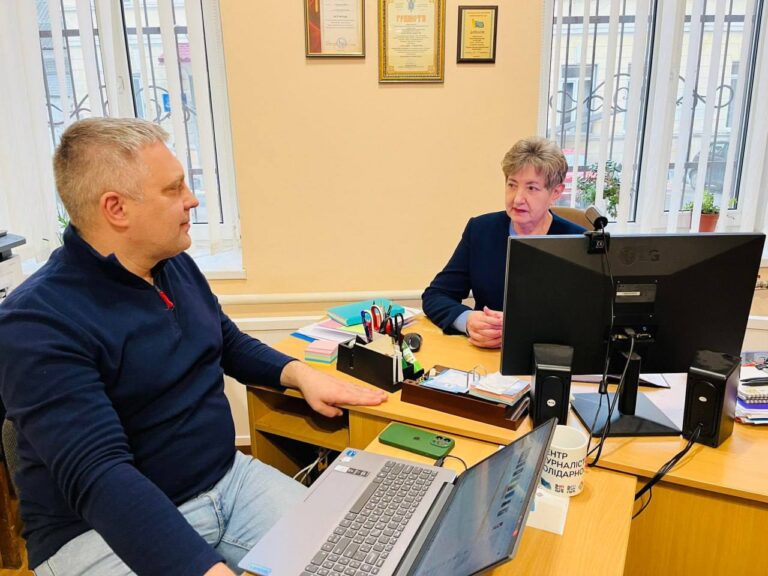
Viktoriya Plakhta summarizes:
“It is very important for the journalistic community to be as united, united, and united as possible during this difficult period. Therefore, we strive to support our colleagues, help them work, and fulfill our main mission – to bring the most up-to-date information about what is happening in Ukraine to the general public.”
Bohdana Zasidko
Reference Information:
- The JSCs are a network of safe hubs for journalists, created in 2022 by the NUJU in partnership with the International and European Federations of Journalists. The key partner of the network is the UNESCO The JSCs operate in six regions – Kyiv, Zaporizhzhia, Kharkiv, Dnipro, Lviv, and Ivano-Frankivsk. They provide media professionals with protective equipment (body armor, helmets, and first aid kits), equipment, security consultations, legal and psychological assistance, as well as a workspace. Over the past two years, more than 2,400 journalists have used the services of the JSCs. Among them are Ukrainian and foreign correspondents, including those from Le Monde, Süddeutsche Zeitung, The Daily Mail, SVT, RFE/RL, and other leading media outlets.
- The JSCs have become a key infrastructure for the safety of journalists in the war zone and an example of international solidarity in protecting freedom of speech.
How to find the JSCs of journalistic solidarity?
The JSCs are located in:
- Kyiv – 27A Khreshchatyk Street, Tel: 050 680 5204 (Illia Suzdaliev);
- Lviv – 5 Solomiyi Krushelnytskoyi Street, 2nd floor; Tel: 097 907 9702 (Nataliya Voitovych); point of presence in Chernivtsi – 96 Nezalezhnosti Avenue, Tel: 068 286 3706 (Volodymyr Bober);
- Ivano-Frankivsk – 25 Sichovykh Striltsiv Street; Tel: 066 677 0726 (Viktoriya Plakhta);
- Zaporizhzhia – 152 Sobornyi Avenue; Tel: 096 277 5352 (Nataliya Kuzmenko and Valentyna Manzhura);
- Dnipro – 8 Starokozatska Street; Tel: 050 919 8479 (Nataliya Nazarova);
- Kharkiv – Tel: 095 421 5477 (Hanna Chernenko).

 THE NATIONAL UNION OF
JOURNALISTS OF UKRAINE
THE NATIONAL UNION OF
JOURNALISTS OF UKRAINE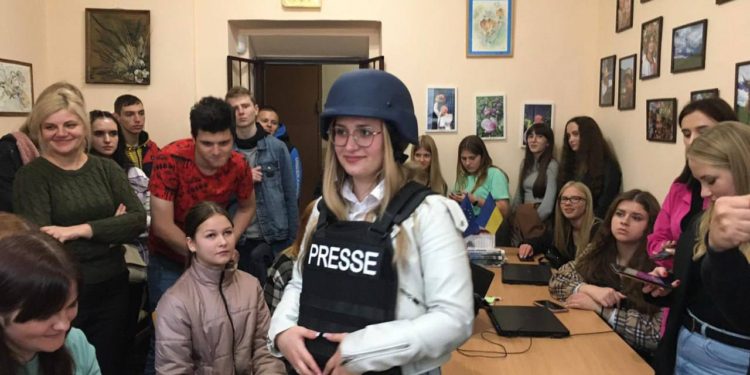
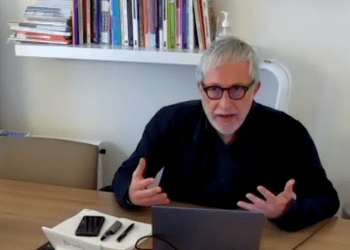
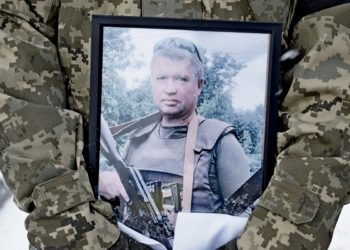
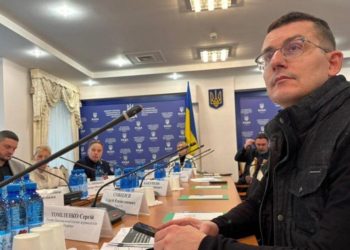













Discussion about this post